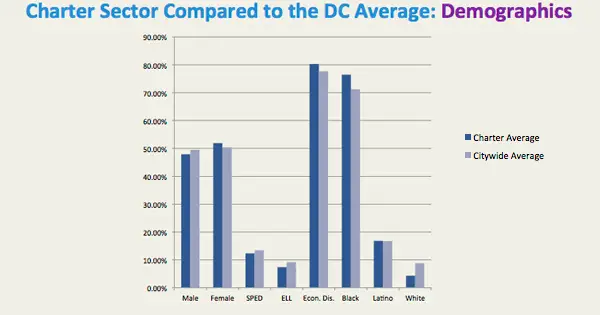When charter schools were first introduced as an alternative to the traditional school system, the promise was that high levels of autonomy and rigorous accountability would allow schools to produce exceptional results for the students they serve. Simply put: autonomy + accountability = results.
Accountability for schools has historically been measured in terms of financial, legal, and academic performance. However, missing from this definition is the question of equity. Charter schools are public schools—open to all students, regardless of race, income, or neighborhood—and when a student enrolls in any public school, a contract is essentially created. The school commits to meeting the academic and non-academic needs of the students, and the family commits to following the policies of the school. What is the role of the charter authorizer or school district in ensuring that this contract is honored—that schools serve the needs of all students—and what happens when it is broken? What happens when a school suspends close to a third of its students? When five percent are expelled? When students with disabilities withdraw after just a few months or one year?
To address this question in D.C., all of the city’s educational authorities—the District of Columbia Public Schools (DCPS, the traditional school system), the Public Charter School Board (PCSB, the city’s only charter school authorizer), the charter schools themselves, and the D.C. superintendent of education—worked together to create a citywide report to measure how accessible schools are to all students, and how well schools are serving all students.
Equity Reports compare public schools, both traditional and charter, to one another by showing their expulsion, suspension, and attendance rates, and the academic performance of each of the school’s demographic subgroups and grade levels. The reports also track student mobility in and out of each school. These reports provide the public with a comprehensive look at a school’s ability to meet the needs of all its students.

In addition to providing transparency, Equity Reports address assumptions long held by many who are skeptical of charter school performance:
- Charter schools “dump” students after getting paid for them.
There is no evidence of charter schools “dumping” students. DCPS and charter schools lose on average 5.7 percent of their population over the course of the school year. - Charter schools serve a more advantaged population than DCPS.
Actually, D.C.’s charter schools serve a higher percentage of students eligible for free or reduced-price meals. - Charter schools suspend more black and poor students than DCPS.
Actually, charter schools suspend fewer students in these categories than DCPS. - Charter schools do not serve students with disabilities.
D.C.’s charter schools serve all levels of students of need at roughly the same percentages as DCPS. - Charter schools don’t perform as well academically as DCPS.
On average, charter school students perform better on the state assessment in reading and math. In fact, charter schools outperform the district schools with special education students, African-American students, and male students.
As with any good piece of data analysis, the reports raise as many questions as they answer.
DCPS takes in new students throughout the year and charter schools generally do not. Is this equitable, or should public charter schools be required to take in new students when they lose students?
Suspension rates are high across both sectors. Is there a correlation between students dropping out of school and multiple suspensions?
Both charter schools and traditional public schools in D.C. will continue to address the concerns revealed by the data in the Equity Reports. Importantly, decision-makers at every level—from parents to individual charter school boards to public officials—now have data they can use to ensure that schools uphold their end of the public school contract for every child, regardless of which public school he or she attends. This is a major step toward ensuring an equitable education for all of our students.
Naomi DeVeaux is the Deputy Executive Director of the DC Public Charter School Board. The Board is responsible for academic achievement for the 112 public charter schools in Washington, D.C.


